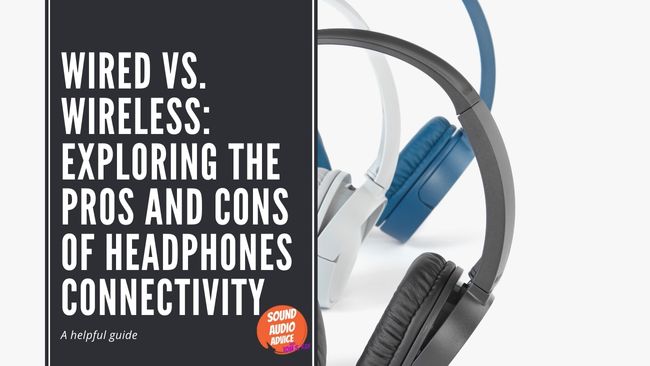
Headphones for Different Lifestyles: Gaming, Fitness, Travel, and More
March 16, 2023
The Evolution of Headphones: From the Past to the Present and Beyond
March 16, 2023
Wired vs. Wireless: Exploring the Pros and Cons of Headphones Connectivity
Ah, the age-old debate: wired or wireless headphones? As technology advances and wireless options become increasingly popular, many music lovers and audio enthusiasts find themselves torn between the convenience of wireless connectivity and the reliability of a good old-fashioned cable. Fear not, for we shall dive into the pros and cons of each option, helping you to make an informed decision and embrace your audio destiny.
Wired Headphones: Sturdy and Reliable
Pros:
Unbeatable sound quality: Wired headphones are the undisputed champions of sound quality, delivering a clear, stable, and interference-free audio experience. With a trusty cable, there’s no need to worry about signal dropouts or reduced audio fidelity.
No battery woes: One of the most significant advantages of wired headphones is that they don’t require batteries or charging, allowing for uninterrupted listening sessions free from the tyranny of power outlets.
Compatibility: Wired headphones are compatible with a wide range of devices, including older audio equipment, making them the go-to choice for those with a penchant for vintage tech.
Cons:
Tangled mess: The dreaded cable tangle is the bane of every wired headphone user’s existence, leading to frustrating untangling sessions and the occasional urge to tear one’s hair out.
Limited mobility: Wired headphones can restrict movement, which may not be ideal for those who like to move around during their listening sessions or engage in physical activities.
Wireless Headphones: Cutting the Cord
Pros:
Freedom of movement: Wireless headphones provide unparalleled freedom of movement, allowing users to dance, exercise, or simply roam about without the hindrance of cables.
No cable wear and tear: Without cables, there’s no need to worry about frayed wires or damaged connectors, extending the lifespan of your headphones.
Modern device compatibility: With many modern devices ditching the headphone jack, wireless headphones are becoming increasingly necessary for compatibility with smartphones, tablets, and other gadgets.
Cons:
Compromised sound quality: While wireless technology has come a long way, sound quality can still suffer in comparison to wired options, particularly in budget-friendly models.
Battery life and charging: Wireless headphones require regular charging, meaning you’ll need to keep an eye on battery life to avoid being caught in silence mid-song.
Potential connectivity issues: Wireless connections can occasionally suffer from interference, signal dropouts, or pairing difficulties, leading to a less consistent audio experience.
Ultimately, the choice between wired and wireless headphones comes down to personal preference, priorities, and use cases. If sound quality and compatibility reign supreme, wired options may be the way to go. However, if freedom of movement and modern device compatibility are essential, wireless headphones could be your perfect match. So weigh up the pros and cons, and let your audio preferences guide you towards your ideal pair of headphones. Happy listening!
Thanks for reading.
Tom
I’m Tom S. Ray and I’m head mastering engineer at Audio Unity Group. I also hold a bachelor with honours degree in music from Kingston University in London, I lecture mastering to students in Edinburgh College and to my online students via my Mastering Mastery audio mastering online course.


